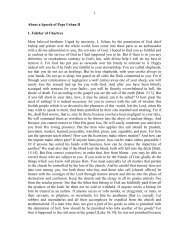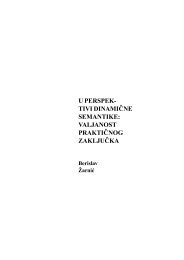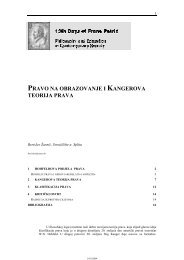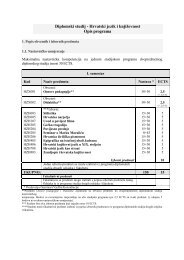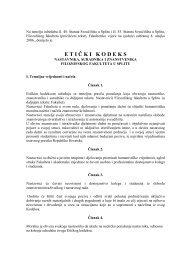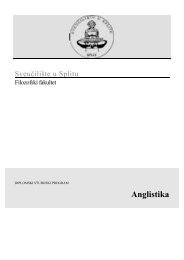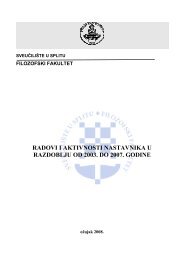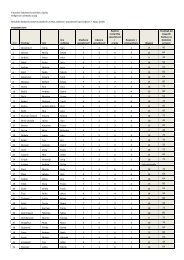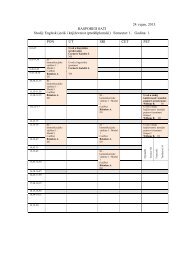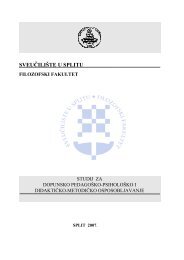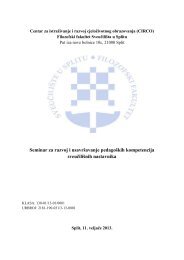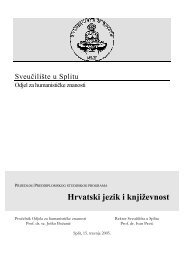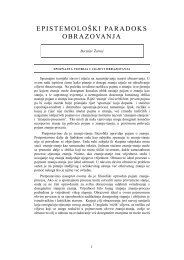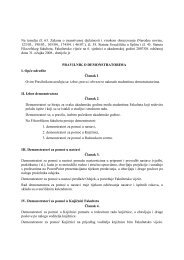English Studies
English Studies
English Studies
You also want an ePaper? Increase the reach of your titles
YUMPU automatically turns print PDFs into web optimized ePapers that Google loves.
G R A D U A T E D E G R E E P R O G R A M M E : E N G L I S H S T U D I E S<br />
Recommended<br />
reading<br />
Supplementary<br />
reading<br />
Teaching<br />
methods<br />
Assessment<br />
methods<br />
Language of<br />
instruction<br />
Quality<br />
assurance<br />
methods<br />
investigations of the changing languages and dialects. The pure internal<br />
linguistic changes are correlated with the extralinguistic factors that<br />
influence language change. The main topics are: mechanism of linguistic<br />
change; diachrony versus synchrony; language evolution; factors<br />
influencing the course of linguistic change. The emphasis is on the most<br />
recent interpretations of language and dialect change.<br />
Aitchison, J. (2002). Language Change, Progress or Decay?. Cambridge:<br />
Cambridge University Press.<br />
Coupland, N. & Jaworski, A. (1997). Sociolinguistics, A Reader. New York:<br />
St. Martin’s Press.<br />
Croft, W. (2000). Explaining Language Change. An Evolutionary<br />
Approach. Longman.<br />
Crystal, D. (2000). Language Death. Cambridge: Cambridge University<br />
Press.<br />
Labov. W. (2001). Principles of Linguistic Change, Social factors. Oxford:<br />
Blackwell.<br />
Nettle, D. & Romaine, S. (2000). Vanishing Voices: the Extinction of the<br />
World’s Languages. Oxford: Oxford University Press.<br />
Salikoko, S. M. (2001). The Ecology of Language Evolution. Cambridge:<br />
Cambridge University Press.<br />
Trudgill, P. & Schilling-Estes, N. (Eds.) (2002). Handbook of Language<br />
Variation and Change. Oxford: Blackwell.<br />
Trudgill, P. & Britain, D. (forthcoming). Dialects in Contact (2 nd ed.)<br />
Oxford: Blackwell.<br />
1. Lectures (traditional with student-participation encouraged).<br />
2. Seminars (students write short papers which are then presented in the<br />
classroom).<br />
3. Close readings of some relevant theoretical points.<br />
1. Active participation in the classroom discussions, oral presentations.<br />
2. Written and oral exam at the end of the course.<br />
<strong>English</strong>.<br />
Student feedback via questionnaires.<br />
Course title Croatian language - Language Practice<br />
Course code HZEY005<br />
Type of course Exercise course / Advisory hours<br />
Optional course.<br />
Level of course Intermediate level course.<br />
Year of study First Semester One<br />
24



